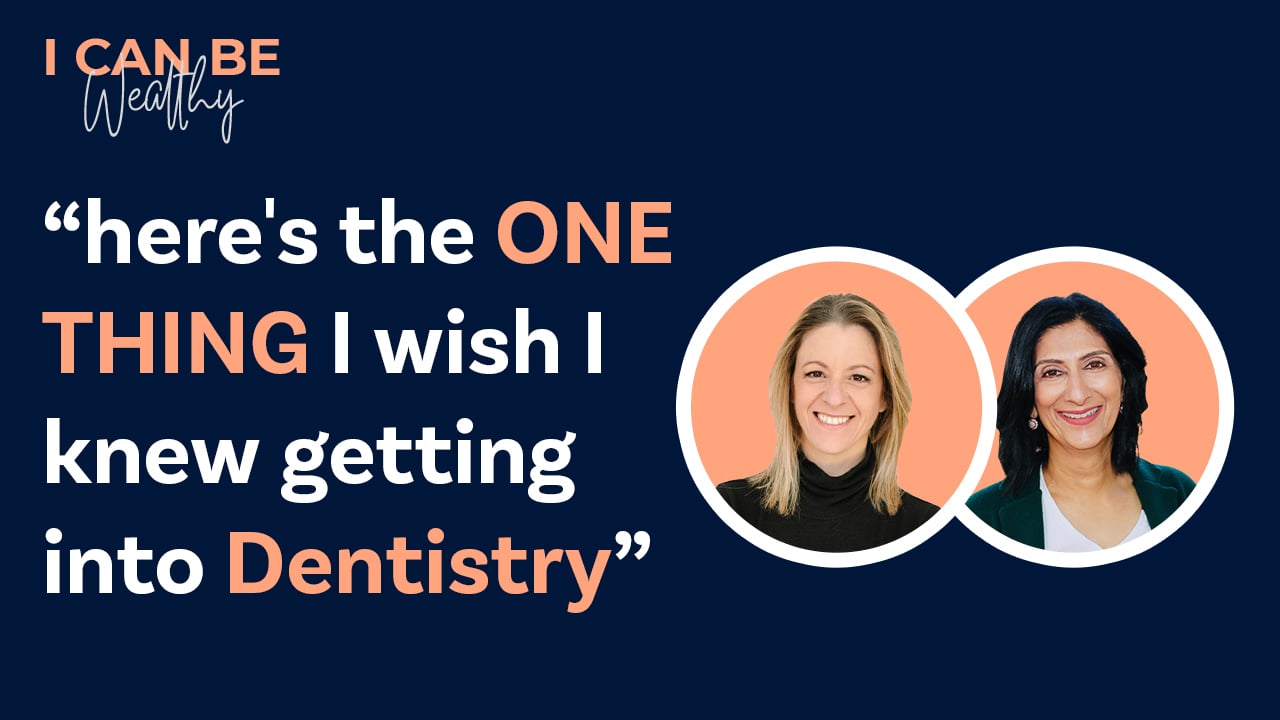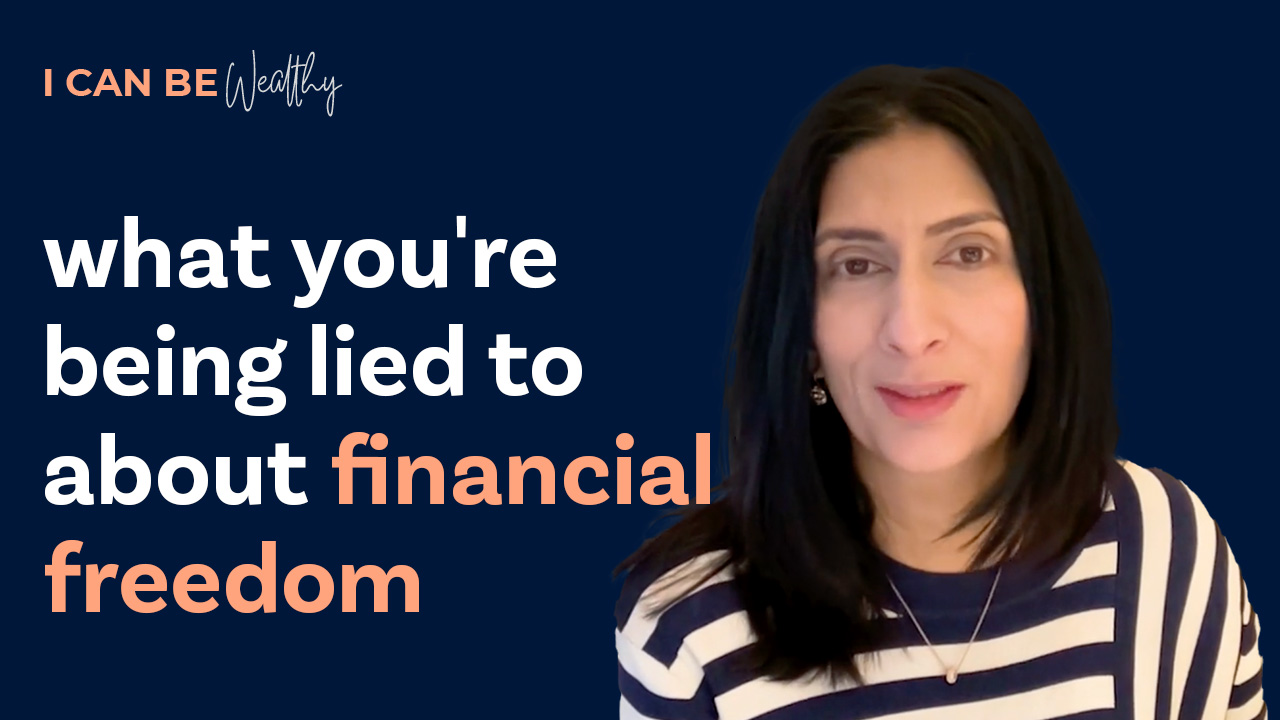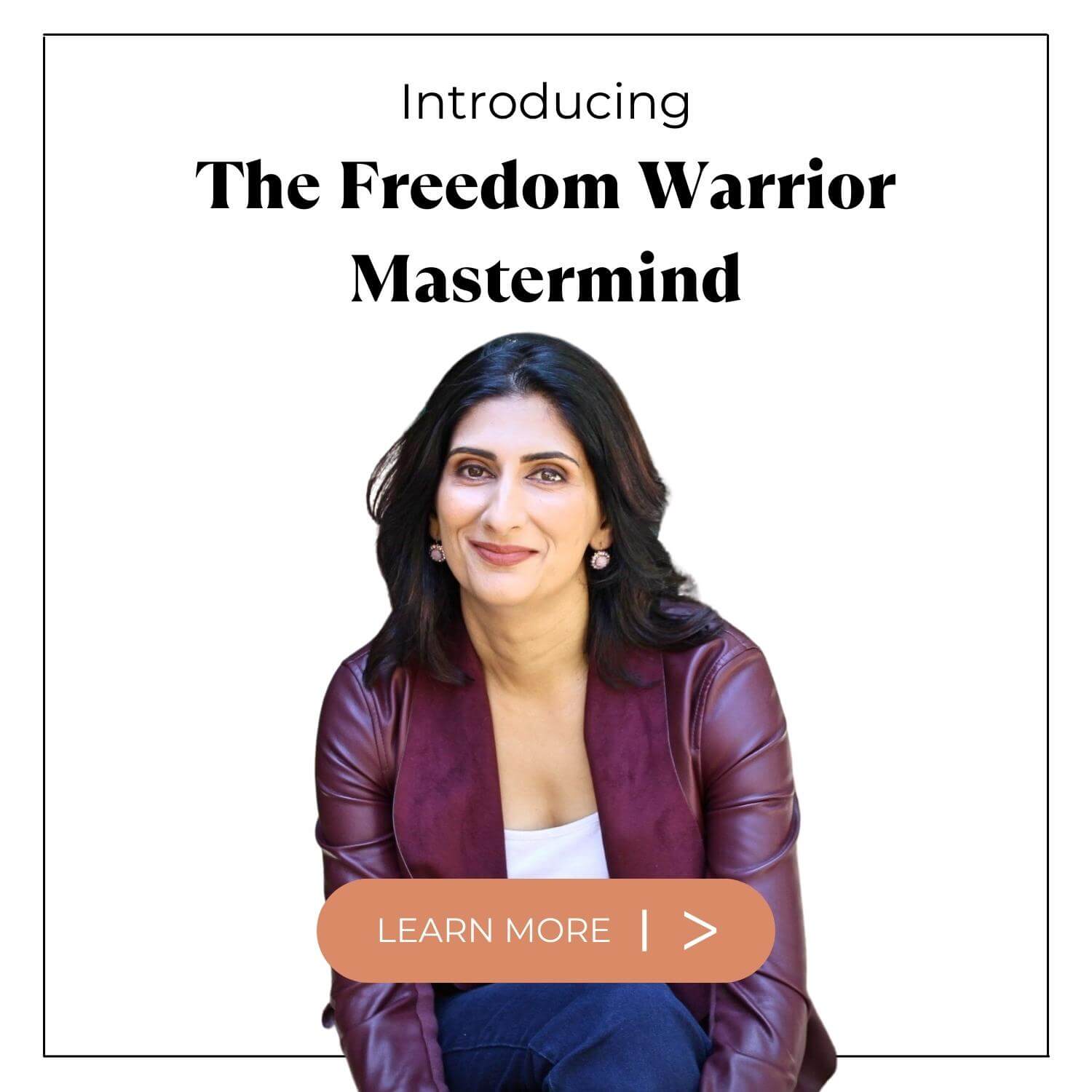Tyrone Shum of Property Investory Delves into My Journey as a Wife, Businesswoman and Property Investor
On this week’s episode, I’m on the other end of the questions! Tyrone Shum, of the Property Investory podcast, takes the time to ask me questions about my journey as a human, corporate businesswoman, and property investor.
What I love about this interview is Tyrone’s ability to ask questions that unpack ideas that lean towards being subtle; and shine the torch on where alternative investing fits into portfolio building in the world today.
Connect with Tyrone:
Twitter: https://twitter.com/tyroneshum
Website: https://propertyinvestory.com/
LinkedIn: https://au.linkedin.com/in/tyroneshum
Instagram: https://www.instagram.com/propertyinvestory
Facebook: https://www.facebook.com/tyroneshum
Show Notes:
00:00 – Welcome to the show
00:29 – Intro on Property Investory
02:36 – Salena’s Day-to-Day Life
Read More03:55 – Salena’s Origin Story
05:29 – Life before migrating to Australia
08:04 – The Desire for Financial Freedom
09:03 – Salena’s Childhood Experiences
10:45 – Salena’s early life in Australia
13:35 – Career as a Chartered Accountant
16:21 – Returning to London
18:15 – Returning to Australia
19:18 – Experiences from Travelling the World
21:37 – Transition to Becoming an Entrepreneur
23:57 – First Experiences with Property Investing
29:06 – Salena’s Current Portfolio
30:22 – Salena’s Biggest Investing Mistake
35:17 – What to Learn from Bad Investing Decisions
36:50 – Outro
Q: Let’s start with what is your title, and what do you do?
- I work with business owners to achieve financial freedom early using alternative strategies by giving them access to highly curated non-traditional property investment opportunities.
- And I divide my time between supporting clients and spending time finding the best deal makers and advisors out there.
Q: So you mentioned that you do divide your time with the clients and so forth. Could you share a little glimpse of what your day-to-day looks like?
- I kind of feel it’s really important to walk your talk, so I have a lot of Spanx in my diary.
- I generally don’t start work before ten in the morning, and I’m usually gone by three. I also don’t work Fridays.
- I’ve learned that if I want to be effective and want to help people, I’ve just got to be very focused when I come in.
- But, in general, I love just talking to people one-on-one about where they’re at and where they’re stuck because I’ve spent a lot of time doing a lot of different things.
- I’ve got a great capacity to diagnose where people are experiencing friction.
- And then, on top of that, I think my superpower is probably making friends with people.
- The thing I’m most proud of is that I’ve got a fantastic network of really great people who support me in the program and the work that I do.
Q: Let’s get to know you personally delve back into your story a little bit. Firstly, could you share with the audience where you grew up?
- So, I was actually born in the UK.
- We migrated to Australia when I was nine.
- I’m actually Indian but never really grew up there.
- We moved to a small town called Lithco, which I’m sure many of, you know, eventually settled in Canberra.
- I think my path to where I am today has been very meandering, but I had originally wanted to become a vet but realised I just didn’t have the stomach for blood and guts.
- I decided to study accounting as a bit of a stop-gap until I figured out what I really wanted to do.
- But it was probably my father’s illness, when I was about ten, that was probably the subconscious driver to understand how to build a great relationship with money because I saw the impact that his illness had on him.
- I think accounting and I were never really a fit, so I jokingly call myself a reformed accountant.
- I’m still a chartered accountant now, but I’ve had a very meandering path to get where I am.
Q: I’m curious to learn a little more about the change or the migration from the UK to Australia. What was childhood like in the UK before you moved?
- I would say it was idyllic.
- We lived in a small country town – there would have been, I guess, maybe 300 people in the town.
- There was one fish and chip shop and one tiny supermarket. And that was all.
- The move to Australia came about because I don’t know much about the Thatcher years, but it was a pretty grim time to live in the UK – employment was very high.
- My father was a double engineering degree holder but had been unemployed for six months
- And I think he saw an opportunity to come to Australia and took it as an opportunity to get a fresh start.
- But I mean, we literally came here with a handful of suitcases and nothing else, and we moved into a government house in Lithco.
- I don’t have any bad memories of it whatsoever, but I knew that it would have been pretty rough by modern standards. – we had a small kerosene heater, and it was freezing cold all the time.
- Look, I still have great memories of Lithco, though!
- It was probably around that time in transitioning to Australia that my dad found out that he had a major illness and only had a few months left to live.
- And so he took the opportunity to move us to Canberra because his primary concern was how we were going to survive after he passed.
- But fortunately for him, some technology was created and he was told that he had another three months, and then it became another three months.
- Ultimately he went on and lived another 30 years – which was the shocking part!
- My parents both really sheltered my sister and me from all of that, but we sort of saw a change in him overnight when he was diagnosed.
- He went from pretty happy go lucky to completely preoccupied with money and whether there would be enough.
- I think the lesson that I took from all of that was I never want to be in a situation where I’ve got to worry about money.
Q: So, taking a step back then. What was it like living in the UK for the nine years that you grew up there?
- It was very innocent.
- One of the things that I love about the UK, which we don’t seem to have here in Australia, is that they provide hot school lunches.
- It was the norm and only the posh kids would bring a lunch box with a sandwich and apple from home.
- I remember begging my mom every now and then to let us take a lunchbox.
- But yeah, even at the poorest of poor schools, they would provide a hot lunch every day.
- I have great memories of that. The only thing I remember that left a strong impression on me was the liver.
- They used to serve it with gravy, and that was the only meal that we ALL used to balk at, but otherwise, it was really good food.
- I think the only dark cloud that I remember from that time is it was definitely a time of ethnic intolerance and I do remember being teased quite a lot.
- But I think my nature has always been to focus on remembering the good stuff. So, in general, I think it was a great experience.
Q: What was it like living in Canberra?
- Canberra has come a long way since the early eighties.
- Perhaps I wouldn’t have settled here if circumstances hadn’t unfolded the way they did. But back then it was just a nice place to live.
- It was very much a government town with a very sort of public service mentality.
- There was a very small Indian community here – everyone knew everyone and life was pretty simple.
- I still think Canberra is one of Australia’s best-kept secrets as a place to live.
Q: Did you go out into the workforce straight away or did you continue further education studies?
- I went to ANU (the Australian National University) and started studying commerce economics and then moved to Sydney and started my career with Deloitte.
- And it was kind of an unconscious career evolvement at that point. I did accounting as a stop-gap because I couldn’t figure out what else to do.
- So I finished my studies and got a job offer at Deloitte when jobs were pretty thin on the ground – we were in the midst of a recession.
- Even Deloitte had massive redundancies internally so we were being brought on as the grads for slave labour.
- During that time, I definitely gave a pound of flesh for the first couple of years while I did my chartered accountancy designation and work.
- It was really fun, but it was not uncommon to start work at 08.00 am and finish somewhere between 10.00 pm and 2.00 am and then go home to study.
- But I guess, when you’re young, you just do it. Everybody else did it, so you just did it too.
Q: So I guess from that point onwards, how long were you working at Deloitte for?
- I think I was there for just over three years.
- I got my chartered accountancy, and then it was sort of a trend at the time to go overseas and do a gap year.
- I had gone into the workforce when a lot my friends had gone travelling. So, when I finished at Deloitte, I decided to go travelling the world.
- I kind of feel like I might’ve done it the right way around because back then I had friends working in pubs and things like that for three to five pounds an hour.
- And, I went into the workforce as a chartered accountant earning megabucks and doing amazing roles.
- Going overseas really gave me an insight into how the world sees Australians. We’re definitely perceived as having a fantastic work ethic.
- So, it was easy to be pulled out as a bit of a diamond in the rough amongst a whole lot of prospective employees.
- I worked in some super senior roles for my age that I would never have had the opportunity to do if I stayed in Australia.
- The move overseas really catapulted my career in terms of money and work and still gave me that freedom to travel and do what I wanted to do.
- I did that for another three and a half or four years before I decided to come back to Australia.
Q: Which countries did you go to while you were travelling?
- I worked in London, New York, Hong Kong and parts of Europe.
- I worked for some big multinationals.
- I always found part of the challenge for me with accounting was that I can do the detail, I just really don’t enjoy it.
- So the roles I used to be attracted to were more where I was kind of like the liaison between the business and the accounting department or the business and the IT department.
- I think I’ve got a natural interest in problem-solving and the elegance of solutions. So I found myself in lots of roles where I was required to sort out problems.
Q: Since you went back to London, did you go and visit your hometown? Did you have any family over there?
- No family – it was just the four of us. My parents and myself and my sister.
- We’ve got quite a bit of extended family settled here in Canberra now, but my parents had no support back in the UK.
- But I did go back to the town that I grew up in, which sadly had been extremely overdeveloped.
- There were lots of new housing estates. Many of the places I spent time as a kid were all gone.
- And the primary school felt microscopic. I almost couldn’t believe that there were so many of us that fit in that school.
- I really love the experience of going back, but it was also sad to see because I’m a very sentimental, nostalgic kind of girl.
Q: Why did you decide to come back to Australia after travelling?
- My decision was probably family-based. My dad wasn’t in the best of health and I kind of felt like I’d been away for over six years at that point.
- I just wanted to spend a bit of time here and then the plan had been to move to Sydney or Melbourne.
- But as it turns, I had found some interesting work here and one thing led to another and I found myself staying here.
- My now-husband moved here to be with me and set up his business here and we sort of got stuck.
- But you know, life is long. There’s plenty of opportunities and we’re definitely entering another phase where we might see ourselves moving elsewhere, who knows.
Q: What were some of the things you picked up from your travels?
- The experience of being over there was phenomenal from a relationship-building point of view – especially in cities like London, where there is such a melting pot of different cultures and different people.
- So, one of the big takeaways that I had from that experience is my capacity to cope with change, to roll with the punches and to understand that the one thing guaranteed is change.
- From a personal resilience point of view, I grew up a lot in that time.
- I’m still innocent, but less naive now.
- That experience of being out of home, having to figure out life for myself – it’s really when you decide who you’re going to be and what matters to you and what your values are.
- When you’re in an environment where you’re being invited into different people’s world views, part of the challenge is figuring it all out.
- Like whether you align with that worldview or whether you feel differently.
- I was very impressionable when I was younger, but fortunately, I had enough of a moral compass to just keep me on an even keel.
- So, yeah, definitely a great period for personal growth and evolution.
Q: So coming back to Australia, what were you doing during this time?
- It had been building in me from the get-go that I’d always had more of an entrepreneurial streak and part of the reason accounting never felt like a good fit was that it lacks creativity – it’s very black and white.
- And so, when I moved back to Australia, it was absolutely clear that I wanted to start some businesses.
- I had a couple of businesses that I started and then moved on from having a day spa which looked into franchising and then I sold that.
- So, I did a bunch of things like that. I was exploring what being an entrepreneur meant.
- I picked a lot of stupid businesses. Like the day spa experience seriously shaved five years off my life.
- That was meant to be an experience of being a silent investor and just to give you context, two weeks before we were due to open, the girl I was supposed to be partnering with set off.
- She changed her mind and wanted to go overseas.
- It was a very steep learning curve.
- I had learnt a lot by the end of that business but I also learned about staying in my lane, because that was NOT my lane.
Q: When did you delve into property?
- Well, when I got back to Australia, I moved back in with my parents, just because that was my motivation for coming back to Canberra.
- And in an Indian family, the expectation is that you live with your parents. If they had their way, I‘d live with them forever.
- They built that house with the fantasy that my sister and I (with our husbands) would move in with them.
- And as much as I love my parents, at that time, it was like having a straight jacket on because my gorgeous mum would say to me at night, “what time are you going to be home?”
- When you’re used to coming and going as you please, it definitely cramped my style.
- So, that lasted about a year.
- And then they went away for a weekend and I decided to start looking for a house.
- In 2000, the cost to own a house versus the cost of renting was about the same. So, I decided to just buy it.
- I had done a bit of investing in terms of other markets shares and things like that, but that was the first property I bought.
- The real estate agent had been a single woman and had been taken advantage of, and she felt very empathetic towards me.
- So, she whispered in my ear and told me what the place was worth and suggested I put in an offer.
- I didn’t even have finance, had organised nothing, but I put the offer in any way.
- I think that the real estate agent might not have taken higher offers to the owner so she could try and support me.
- So, I got the house and it turned out to be an absolute gem.
- In the time that most properties doubled, this one tripled in value. So that was a fluke first purchase.
- When my now-husband came to Canberra in 2001, he was very clear that property was the pathway to growing wealth.
- I was just like “whatever.” But, when he eventually reached his limit, after buying a couple of properties, he needed me to be part of the journey because I was working in management consulting at the time and earning a pretty good income.
- I had no interest though. He would put paperwork in front of me and I would blindly sign it.
- But eventually, around 2004, I went “crumbs, what have we done?”
- I was pregnant with my first child and thought I’d better have a look at what I was signing.
- And once I started to look at what he was doing, I realised what was happening and that was the point for me, where I decided I needed to give this more attention.
- I educated myself in every way – I bought courses, I met people and looked everywhere.
- The biggest influence of my success, however, was finding mentors.
- At that point, I basically told my husband to step aside and he was more than happy for me to take it from there.
- And that was the start of the journey.
Q: What was your husband doing at that point in time as well?
- So John is a chiropractor and he runs a great business. He is very successful in what he does.
- But he has a different energy to me. He is very grounded. He doesn’t like to stretch himself or stress himself out.
- Whereas I’ve got the high energy, high excitement kind of personality. He was more than happy for me to just take the reins and it kind of became a bit of a role reversal.
- It became me putting papers in front of him and telling him to sign here and there.
- And it’s been that way ever since.
Q: How many properties would you say you’ve got in your portfolio at the moment?
- I’ll probably answer that question a bit later because if I incorporate all of the alternate stuff, there’s quite a few.
- The phase of investing that I’m in now is more about simplifying rather than volume.
- In 2000, you could almost throw a date at the map of Australia and do okay. There’s a lot of people who made a lot of money during that boom time.
- For a lot of people, it was just being in the right place at the right time.
Q: What do you think has been the worst investing moment you’ve ever had?
- There’s probably a couple of things that spring to mind, but I think the most painful experience and probably the thing that caused the biggest fracture in our wealth creation journey was, in 2008, when we had started to dabble in some small scale developments.
- I embarked on a joint venture with someone who was developing a parcel of land on the central coast. It would have been very lucrative.
- Even with the due diligence and all the legal documents I put in place, I couldn’t have anticipated that he would basically scam us.
- And at that time we had just paid off our house. We had quite a good portfolio of property and we were in this great position. So what we ended up doing was refinancing to do this development.
- It was a multi-million dollar subdivision and he fleeced us and took the lot.
- That was a very, very painful lesson to recover from both financially and mentally.
Q: How was this person able to just fleece and get away with all that?
- He spent quite a lot of time getting to know us and got to know my family.
- He talked a big game – took me around to see deals which he claimed were his.
- I did a lot of due diligence and the deal itself stacked up. But in the end, it came down to him having access to the funds and he just drained them.
- After that happened, we tried to get the funds back – we got lawyers involved and went to ASIC.
- But at the end of the day, the lawyers said we could chase this for a very long time through the courts and spend tens of thousands of dollars and not get the results. So, we let it go.
- John and I have worked through a lot to sort of mentally digest that, but I think there’s been so much gold from that experience.
- It taught me a lot about things that might have been overlooked and precautions that could have been taken.
- Fortunately, we had a bunch of other things happen that kind of helped us mend that damage.
- That’s why I’m such a huge advocate for people making sure that they digest the pain around any kind of financial loss, because I’ve supported hundreds of investors whose relationships have broken down over insignificant sums of money because they just weren’t able to digest the loss.
- There’s a lot of lessons around the due diligence side of things and the precaution side of things but also just learning how to pick yourself up, dust yourself off and move on.
Q: What would you say would have been the precautionary lesson?
- I think there were just nuances in the actual contract that could have been better dealt with.
- And if I really wanted to I could have gone back and had a go at the lawyer that we used.
- So the one thing I learnt was not to quibble with people on fees for anything. I just pay the fee because I want the absolute best protection.
- Whereas, when you start out, you are sometimes looking to save money and to cut corners. So, you end up looking for cheapest property managers, cheapest, conveyances, cheapest, legal support.
- And I just think you, you get what you pay for.
- Doing good due diligence is the cornerstone of getting the right results.
- I’ve been burned a few times by going for the cheapest option and it comes to bite you in the end.
Related Podcasts
How Dentists Are Tackling Wealth and Practice Challenges in 2024
In this episode, I interview Julie...
A Journey of Building Wealth Through Websites with Matt Raad
In this episode, I interview a...
The Passive Income Investing Strategy
In this episode, we talk about the...
The Sack of Sh*t We’ve Been Sold About Wealth Building
In this episode, we talk about why...

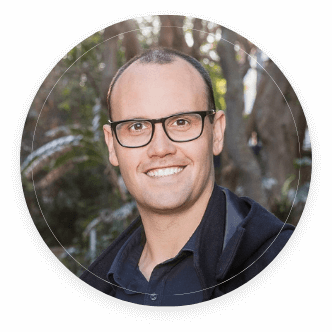
M. Brickwood
![]()
The Freedom Warrior program has given me the education, access to opportunities, and fresh investment advice to setup a bright future for me and my family.

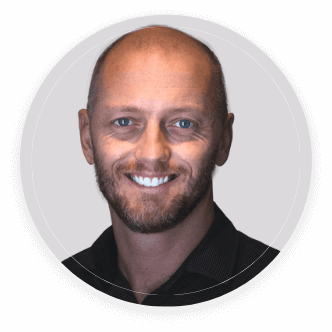
B. Williams
![]()
If you are really serious about building real wealth in your life (intergenerational wealth) and creating a legacy, there is no better place.
